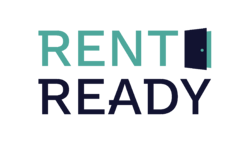In this month’s Dispatch, we cover local property management startup Rent Ready, 5 job opportunities, and what we’ve been reading in the startup space.
RENT READY (website, linkedin, instagram)
Tagline: “Everything you need to manage your turns. All in one place.”
What they do: Rent Ready is a platform that uses software to help coordinate the process of getting vacant apartment homes ready to rent (“turn”). Built to eliminate the frustration of typical apartment turns, Rent Ready utilizes a proprietary logistics platform to connect owners and property managers to skilled professionals.
Year Founded: 2014
Location: Charlotte, NC
Founders: Jonathan Kite, Will Brugh, and Ryan McMillan. The folks over at the Tech Tribune did a short Q&A with Jonathan Kite.
Founding Story: After a six-year tenure at Microsoft, Jonathan Kite joined forces with fellow UNC Chapel Hill graduates Will Brugh and Ryan McMillan to found Rent Ready. Since 2014, the Charlotte-based company has been providing make-ready services for the apartment and rental industry including painting, cleaning, carpeting, drywall repair and counter and tub resurfacing services at communities across the south.
Employees: ~60
Customers: Operates in Tampa, Greenville (SC), Charlotte, Raleigh and Atlanta.
Funding: Raised $10 million in Series A capital in March 2021 to build out an automated “turn board” (Charlotte Inno)
Read more about them:
Charlotte Inno and Hypepotamus on the Series A round
Q&As with CEO Jonathan kite by Business North Carolina and Tech Tribune
💼Job Opportunities in the Charlotte Area
We culled the internet so you don’t have to! The job market continues to look great with a wide range of tech-oriented roles:
What We’ve Been Reading
#1 Startup Self-Repricing as a Recruiting Tool by Tomasz Tunguz. Startup valuations ballooned over the last couple of years due to massive economic stimulus packages, low interest rates, more retail investors getting into day trading, and the underlying fact that software companies were able to maintain and even accelerate growth rates during COVID. Software companies were fortunate to emerge from the brunt of COVID relatively unscathed compared to companies that rely more on in-person activities (manufacturing, retail, food service, entertainment, and many more).
Those in-person sectors took much larger economic hits due to labor shortages and supply chain disruptions, driving even more money into tech because it was a much safer stay-at-home play for investors. Now, software valuations are coming back down to earth as money rebalances away from tech and back into other sectors:
Multiples have compressed by 53% for the 25th percentile public software company and 66% for the 75th percentile (fastest growers). As the public markets have fallen more than 50%, Series C valuations have fallen about 30% year to date.
The upshot of the valuation boomerang, as Tomasz points out, is that the forms of equity compensation (stock options and RSUs), that software companies use to recruit new employees, are now becoming more attractive than they were 6-12 months ago because those options and RSU have more upside if a company decides to reprice.
#2 How to Interview Product Managers (gated) by Lenny Rachitsky. This article has some great insights for anyone working in tech, regardless of whether you are directly involved in the PM interview process or not. Skilled PMs are worth their weight in gold, so it’s helpful to be generally aware of what goes into the hiring process. The takeaway? Include a project as part of your interview process. We do a homework assignment when hiring for our CSM role in my current company, and I can vouch that this is an invaluable way to assess if someone is the right fit for the job. Here’s how Lenny describes it:
I’ve found the project portion of the PM interview process to be the most informative component of the interview. It’s the only time you’ll get to see the candidate tackle a chunky new problem, be able to watch them in action, and have a discussion about it. Though some people don’t include it, I couldn’t imagine a PM interview without it.
The goal of the project is to get a taste of how a candidate approaches a new problem. Most importantly, you aren’t looking at how close they got to the right answer. Instead, you are looking at how they break down the problem, how they structure their solution, and how they communicate it to you. Often the discussion afterward is even more valuable than the prompt itself.
Thanks for reading this month’s Dispatch! See you back here in a few weeks with our April Dispatch. We also have another Q&A in the works for May.
In case you missed it:
💡 Share what you would like to see in future editions of the newsletter!
Got any companies or industries you would like to see covered? Are there any individuals in the startup ecosystem we should talk to? Drop your ideas *here*.





